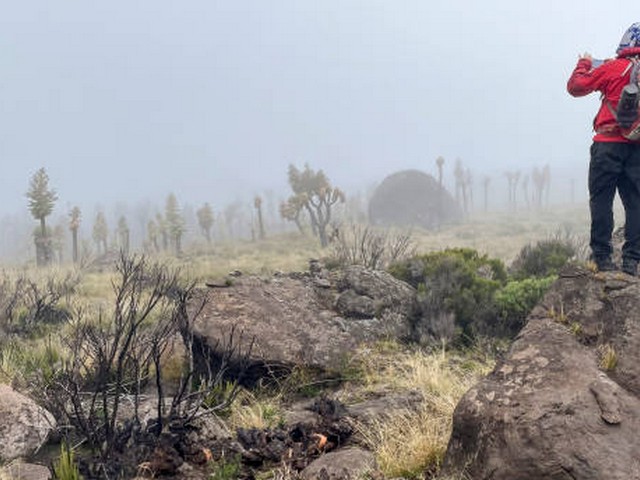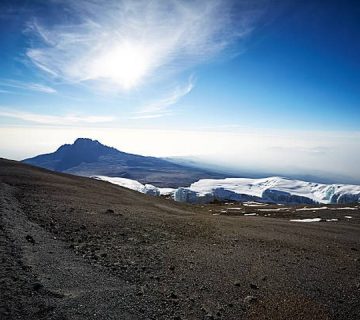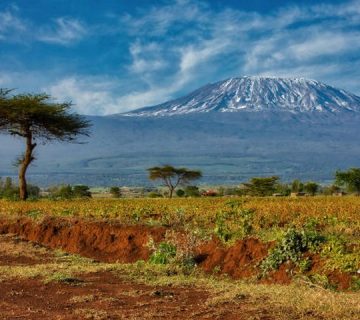Conquer Your Climb: Ultimate Guide to Kilimanjaro Trekking Fitness Preparation
Standing majestically as Africa’s highest peak, Mount Kilimanjaro beckons adventurers from around the globe with its snow-capped summit and breathtaking vistas. At Kilimanjaro Centre for Trekking and Ecotourism (KCTE), we understand that preparing for such an epic climb is much more than packing a bag and booking a flight. It’s about transforming your mind and body to embrace and conquer the challenges of this majestic mountain.
Why Fitness Preparation is Key to Summiting Kilimanjaro
Embarking on a journey to ascend the 5,895 meters (19,341 feet) of Kilimanjaro is no ordinary feat. It requires physical stamina, mental resilience, and a deep connection with nature’s rhythms. Proper fitness preparation not only enhances your chance of reaching the summit but also ensures a more enjoyable and safer experience throughout the diverse terrains of Kilimanjaro.
Crafting Your Kilimanjaro Fitness Plan
Start Early and Build Gradually
Begin your physical preparation at least six months before your trek. Start with basic cardiovascular activities such as walking or jogging and progressively incorporate hiking, preferably on varied terrains. As your fitness level improves, increase the intensity and duration of your workouts.
Focus on Cardiovascular Endurance
High altitude trekking demands excellent lung capacity and endurance. Activities like running, cycling, and swimming are perfect for boosting your cardiovascular health. Aim for at least three to four cardio sessions per week, gradually increasing the length and intensity of each session.
Strengthening Your Muscles
Strength training is crucial, particularly for your legs, core, and back. Exercises like squats, lunges, planks, and deadlifts will fortify your muscles, making it easier to tackle the mountain’s rugged paths and reducing the risk of injury.
Practice Hiking with a Pack
Simulate the trekking experience by hiking with a weighted backpack. Start with a lighter load and gradually increase the weight. This practice not only builds strength but also acclimatizes your body to the feel of carrying gear up the mountain.
Altitude Acclimatization
While physical workouts at home are critical, nothing can completely prepare you for Kilimanjaro’s high altitudes. Incorporate some high-elevation hikes if possible or use an altitude training mask to simulate high-altitude conditions.
Nutrition: Fueling the Ascent
Your body will need plenty of energy during the climb. Focus on a balanced diet rich in carbohydrates, proteins, and healthy fats. Hydration is equally vital, so increase your water intake in the months leading up to your trek.
Mental Preparation: The Inner Journey
Kilimanjaro is not only a physical challenge but a mental one. Engage in activities that enhance your mental toughness like yoga or meditation. Learning to maintain a positive mindset can be the difference between reaching the summit and turning back.
The Importance of Rest and Recovery
Incorporate sufficient rest days in your training schedule to allow your body to recover. Adequate sleep is also essential, as it helps muscle recovery and enhances mental health.
Choose the Right Guide: Kilimanjaro Centre for Trekking and Ecotourism (KCTE)
Partner with KCTE, your expert guides on this monumental journey. Our experienced team will ensure you are well-prepared, supported, and inspired throughout your trek. We offer comprehensive trekking packages and detailed fitness preparation advice tailored to your individual needs.
FAQs: Kilimanjaro Trekking Fitness Preparation
How long before my Kilimanjaro trek should I start training?
Begin your training at least six months prior to your trekking date to adequately prepare your body and mind for the journey.
What is the best type of exercise for Kilimanjaro trek preparation?
A combination of cardiovascular exercises (such as running or cycling), strength training (focusing on legs and core), and practical hiking with a weighted pack are essential for effective preparation.
How important is mental preparation for Kilimanjaro?
Extremely important. The mental challenges of long trekking days and high altitude can impact your climb significantly. Engage in mental conditioning practices like meditation to enhance your resilience.
Can diet affect my performance during the Kilimanjaro trek?
Yes, a well-balanced diet is crucial. Focus on integrating plenty of carbohydrates for energy, proteins for muscle repair, and stay hydrated.
Why should I choose KCTE for my Kilimanjaro trek?
KCTE specializes in Kilimanjaro treks with a deep commitment to safety, ecological responsibility, and providing a transformative trekking experience. Our expert guides support you every step of the way, ensuring a memorable and successful climb.
Ready to Embrace the Challenge?
Preparing for Kilimanjaro is a journey that starts long before you set foot on the trail. At Kilimanjaro Centre for Trekking and Ecotourism (KCTE), we are dedicated to helping you prepare thoroughly for this adventure, ensuring you are fit, equipped, and ready to conquer the Roof of Africa. Reach out to us today, and let’s start planning your successful summit of Mount Kilimanjaro. Together, we can turn your dreams into reality. Book your climb with KCTE and join the ranks of those who have stood atop one of the world’s greatest natural wonders.




